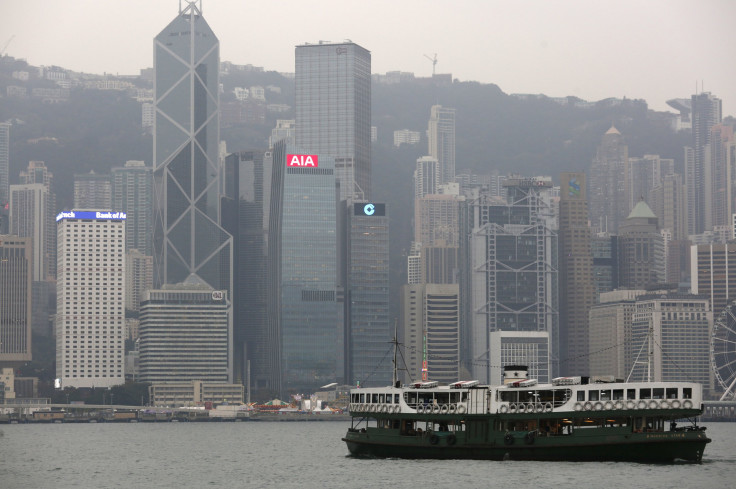Hong Kong Security Law: China Formally Adopts Controversial Legislation, Gives Beijing New Powers Over Autonomous Territory

Chinese President Xi Jinping on Tuesday formally signed a controversial Hong Kong national security law, giving Beijing new powers over the territory and prompting concerns about the future of the autonomous region. The Chinese government believes the legislation is necessary to combat separatism, subversion, terrorism and collusion with foreign forces in the territory, after demonstrations erupted in Hong Kong last summer.
The leader of Hong Kong, Carrie Lam, has defended the law and said it will not undermine Hong Kong’s autonomy from the mainland. The territory has been "traumatized by escalating violence fanned by external forces," she told the United Nations Human Rights Council in Geneva on Tuesday in a video message, adding that “no central government could turn a blind eye to such threats to sovereignty and national security."
"The legislation aims to prevent, curb and punish acts of cessation, subversion of state power, terrorist activities ... These crimes will be clearly defined in the law. We will only target an extremely small minority of people who have (broken) the law," she continued. "The life and property, basic rights and freedoms of the overwhelming majority of Hong Kong residents will be protected."
The legislation has drawn outrage from the international community, along with business leaders and activists. The law will likely have profound implications on free speech and other civil rights in Hong Kong, with critics fearing that the territory is slowly losing its special privileges under the “one country, two systems” principle.
Since Hong Kong’s independence from the United Kingdom in 1997, the territory has been designated as a Special Administrative Region (SAR) separate from mainland China, with Hong Kongers enjoying a high level of civil liberties. Under the SAR’s Basic Law, Hong Kong residents have constitutionally-protected civil rights such as freedom of speech and freedom of assembly, in contrast to mainland China, where these rights are restricted.
In response to the law, Joshua Wong, one of the territory’s most prominent activists, announced he was leaving a pro-democracy group he co-founded, Demosisto. Wong said he expected to be targeted by the national security legislation, as Beijing has labeled him a “black hand” colluding with foreign forces.
“If my voice will not be heard soon, I hope that the international community will continue to speak up for Hong Kong and step up concrete efforts to defend our last bit of freedom,” Wong posted on Twitter.
Two other co-founders of the group, Nathan Law and Agnes Chow, have also stepped down from the organization.
Hong Kong media mogul Jimmy Lai, a prominent voice in the pro-democracy movement, said the legislation "spells a death knell to Hong Kong because it supersedes our law and our rule of law."
U.K. Foreign Minister Dominic Raab expressed “deep concerns” over the law, saying the legislation jeopardizes Hong Kong’s autonomy and that he would discuss the matter with “like-minded partners” in the U.N. Human Rights Council.
On Monday, Secretary of State Mike Pompeo announced that Washington would cease U.S. exports of defense technology to Hong Kong. He said Bejing’s move “to eviscerate Hong Kong’s freedoms” has prompted the U.S. “to re-evaluate its policies toward the territory.” In late May, President Trump said his administration would take steps to end Hong Kong’s “preferential treatment as a separate customs and travel territory from the rest of China.”
Ilan Solot, a currency strategist at the Brown Brothers Harriman financial services firm in London, said the law could hurt Hong Kong’s position as a global financial center. He told Reuters on Tuesday that the legislation “drives another wedge between China and the U.S. that will fuel further separation between them. This just reinforces the view that these countries are moving apart from a geopolitical, economical and a technological perspective."
In March 2019, Hong Kong introduced a Fugitive Offenders bill, allowing the territory to extradite suspected criminals to China. Many Hong Kongers lack confidence in China’s judicial system, with critics believing it could subject them to unfair and impartial trials in the mainland.
In June 2019, demonstrations erupted across Hong Kong in response to the bill, with protesters vandalizing pro-Beijing establishments and symbols. In September, Lam said she would withdraw the proposal, but Beijing has sought to tighten its control over Hong Kong due to the unrest.
© Copyright IBTimes 2025. All rights reserved.





















